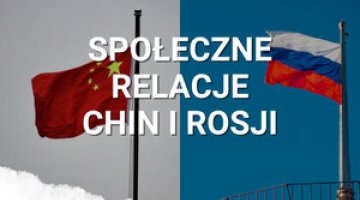A purge in Dagestan ahead of the Russian election
Since mid-January Dagestan, the largest and the most populated republic of the Russian North Caucasus, has been witnessing an anti-corruption operation unprecedented in Russia in terms of its scale. Following this crackdown on corruption, several of the highest-ranking local state officials have been presented with charges and temporarily arrested, among them the acting prime minister and the mayor of Makhachkala, Dagestan’s capital; the government in Dagestan has also been dismantled. The operation has been carried out by officials delegated from Moscow from the Prosecutor General’s Office, the Ministry of Internal Affairs and the Federal Security Service of the Russian Federation (FSB), and has been spearheaded by the acting head of Dagestan, Vladimir Vasilyev. Vasilyev was appointed to this position by President Vladimir Putin in autumn 2017.
At the level of the republic, the aim of the operation has been to visibly settle accounts with the corrupt local elite and to depose officials affiliated to the former head of the republic, Ramazan Abdulatipov. At the regional level, the action was intended to discipline the heads of other republics of the North Caucasus (the purge is supposed to prove that no politician can go unpunished). At the level of the Russian Federation, the clampdown on corrupt politicians should be regarded as an element of Vladimir Putin’s image campaign ahead of the presidential election, scheduled for March this year, and another stage in the process of the state’s centralisation which is being conducted by limiting the autonomy of local elites and depriving them of a substantial part of their revenue coming from corruption.
The anti-corruption operation and a staff overhaul
In mid-January a commission of several tens of officials from the Russian Prosecutor General’s Office travelled to Dagestan and began a thorough anti-corruption inspection. To date the control has extended to 19 ministries and offices of the republic as well as five local administrations. Furthermore, at the end of January, investigation teams from the Ministry of Internal Affairs and the FSB, delegated from Moscow, arrived in order to control local law enforcement forces to check whether there were any corrupt practices involved in their functioning. The Russian Prosecutor General, Yuri Chaika, and the head of the Investigative Committee of Russia, Alexander Bastrykin, became personally involved in the operation; they arrived in Dagestan in February.
The inspectors swiftly uncovered hundreds of cases of legal infringements. They also pointed to the incompatibility of 30 Dagestani laws with federal legislation (in the area of the prevention of corruption). On 13th February the Prosecutor General’s Office announced that the amount of revealed illegal transactions totalled 2.4 billion rubles (over US$ 40 million).
The officials who were presented with corruption charges were dismissed. The mayor of Makhachkala was the first to leave since he was accused of exceeding his competences while granting land to a private company, which is said to have resulted in 80 million Russian rubles (US$ 1.4 million) of losses to the republic’s budget. The Dagestani acting prime minister, Abdussamad Gamidov, his two vice-prime ministers and a former education minister were accused of fraud worth 100 million Russian rubles (over US$ 1.7 million). These officials as well as the general architect of Makhachkala were temporarily arrested. On 5th February the acting head of Dagestan, Vladimir Vasilyev, dismissed the Dagestani government. Two days later Artiom Zdunov, previously not involved in Dagestan, was appointed the new acting prime minister.
Why Dagestan?
Dagestan is exceptionally ethnically diverse; the republic is inhabited by several tens of nations and smaller ethnic groups. The republic’s characteristic feature is the presence of a host of competing national-business-criminal clans - on the one hand this generates conflicts at many levels but on the other hand it fosters unity in the republic. None of the clans (or nations) is strong enough to eliminate or to dominate the remaining ones, which makes it possible to maintain a state of dynamic balance between the groups. Competition between followers of Sufi Islam (which is traditional in the North Caucasus) and proponents of radical Salafism is also an important factor in Dagestan (the religious youth is dominated by Salafis).
Dagestan is among the poorest republics of the Russian Federation; approximately 70% of its budget is from subsidies from the federal budget (the transfers over 11 months of 2017 amounted to over 70 billion Russian rubles, an equivalent of approximately US$ 1.2 billion). At the same time the average monthly income per inhabitant between January and November 2017 was 36,000 Russian rubles (approximately US$ 620), which is higher not only in comparison with neighbouring republics but also the average salary in the Russian Federation. Even though the reliability of these statistics raises serious doubts, the standards of living, particularly in Makhachkala, should be seen as relatively high since a considerable section of the republic’s economy (according to estimates as much as 70%) functions in the grey economy. Social tensions in Dagestan were manifested last year in vehement protests from lorry drivers (caused by an increase in tolls) since many inhabitants of the republic work in the long-distance trucking industry.
It appears that the choice of Dagestan for a crackdown on corruption stems from the fact that the level of corruption there is visibly higher than in other Russian republics. It should be assumed that Vladimir Vasilyev was delegated to Dagestan with the task of dismantling strong local clans and to fully subordinate the republic to Moscow’s control. He is the first head of Dagestan following the collapse of the USSR who not only does not come from Dagestan but who is also not a representative of any Dagestani nations or ethnic groups (he is of Kazakh-Russian descent). Seen from this perspective, his appointment sets a precedent in the entire North Caucasus. The fact that Vasilyev, as a person from outside Dagestan, has so far been accepted by the local elites can be explained by their fragmentation. As for Dagestani society, the new acting head of the republic embodies a non-corrupt politician uninvolved in local pacts. It remains an open question how the local elites will respond to the Kremlin’s visible foray into their clan interests in the long run. It is also unknown whether the methods used in Dagestan will be applied in other republics of the North Caucasus.
This anti-corruption operation on such a large scale has been made possible due to a clearly felt improvement in the security situation when compared to the previous decade and the beginning of this one. Any meaningful terrorist underground in Dagestan has ceased to exist (a certain number of militants were physically eliminated and the majority of them left for the Middle East); private informal protection units which were maintained by politicians and business people were limited. For these reasons the conducting of a purge was linked to a low risk of facing an armed resistance. Nevertheless, it is noticeable that the federal administration has no confidence in the local law enforcement structures (local officials were arrested by officials delegated from Moscow).
The operation in Dagestan as part of the Kremlin’s internal politics
Irrespective of the regional context, the operation in Dagestan has contributed to the attainment of the Kremlin’s strategic objectives at the federal level. Firstly, the crackdown on corruption, as an element of Vladimir Putin’s election campaign, is intended to perpetuate his image as a guarantor of order and the rule of law (Vasilyev straightforwardly refers to the fact that Putin has approved the purges). The fight against corruption, officially declared by the Russian government, is one of the few possible ways that the Kremlin can confirm its social legitimacy in the face of Russians’ dwindling income and the lack of an appealing political platform for Putin’s fourth term in office. It is also a way of weakening the political potential of Alexei Navalny, whom the Kremlin has not admitted as a presidential candidate – his candidature has been deemed too risky for the Russian government. Navalny has built his position by revealing corruption scandals in the Russian elite and the numerous social protests he organised in spring 2017 indicated a large potential for mobilising social support due to slogans of this kind.
Secondly, the settling of accounts with the Dagestani ruling elite can be seen as part of Moscow’s attempts to further centralise power in Russia by limiting the autonomy of regional elites. This process stepped up a gear in 2017 and was manifested in the largest wave of dismissals of governors in five years (at that time the present acting head of Dagestan, Vladimir Vasilyev, was appointed). The governors of the new wave were in fact middle managers and representatives of the nomenklatura, deprived of a political base in the region. The task they were assigned was not to represent the interests of the local elites and societies but rather to execute tasks set by Moscow in the field (the majority of the new acting governors are people from outside the local scene, as is the case of Vasilyev).
Thirdly, the ‘fight against corruption’, which has been gathering momentum in recent years, and which has contributed to the downfall of representatives of the high and mid-level elites (e.g. well-publicised sentences for the former economy minister Alexei Ulyukaev and several governors, and an increasing number of corruption investigations in the regions), serves as an instrument to force the elite to accept new, non-transparent rules of the game in Putin’s system. According to these rules, corruption is not to be eliminated (this is not only impossible but also undesirable) but its scale is to be reduced (an image-related tactic to please society) and the rules of the distribution of corruption-related revenues are to be changed. Due to the falling corruption revenue available for distribution, only the president’s immediate circle can benefit from it in relative impunity and on a large scale. As for the remaining circles, they can do it at their own risk since the boundaries of the permitted practices are blurred. This new limited sense of security of the corrupt elite serves to discipline it. Thus the ‘fight against corruption’ with the lack of its clear criteria has become an instrument which the Kremlin arbitrarily uses for the purposes of its internal politics. Seen from this perspective, the unprecedented scale and explicit nature of the arrests in Dagestan prove the Kremlin’s determination, and probably represent another warning sign, stronger than the previous ones, for both the elites in the North Caucasus and in other Russian regions.




